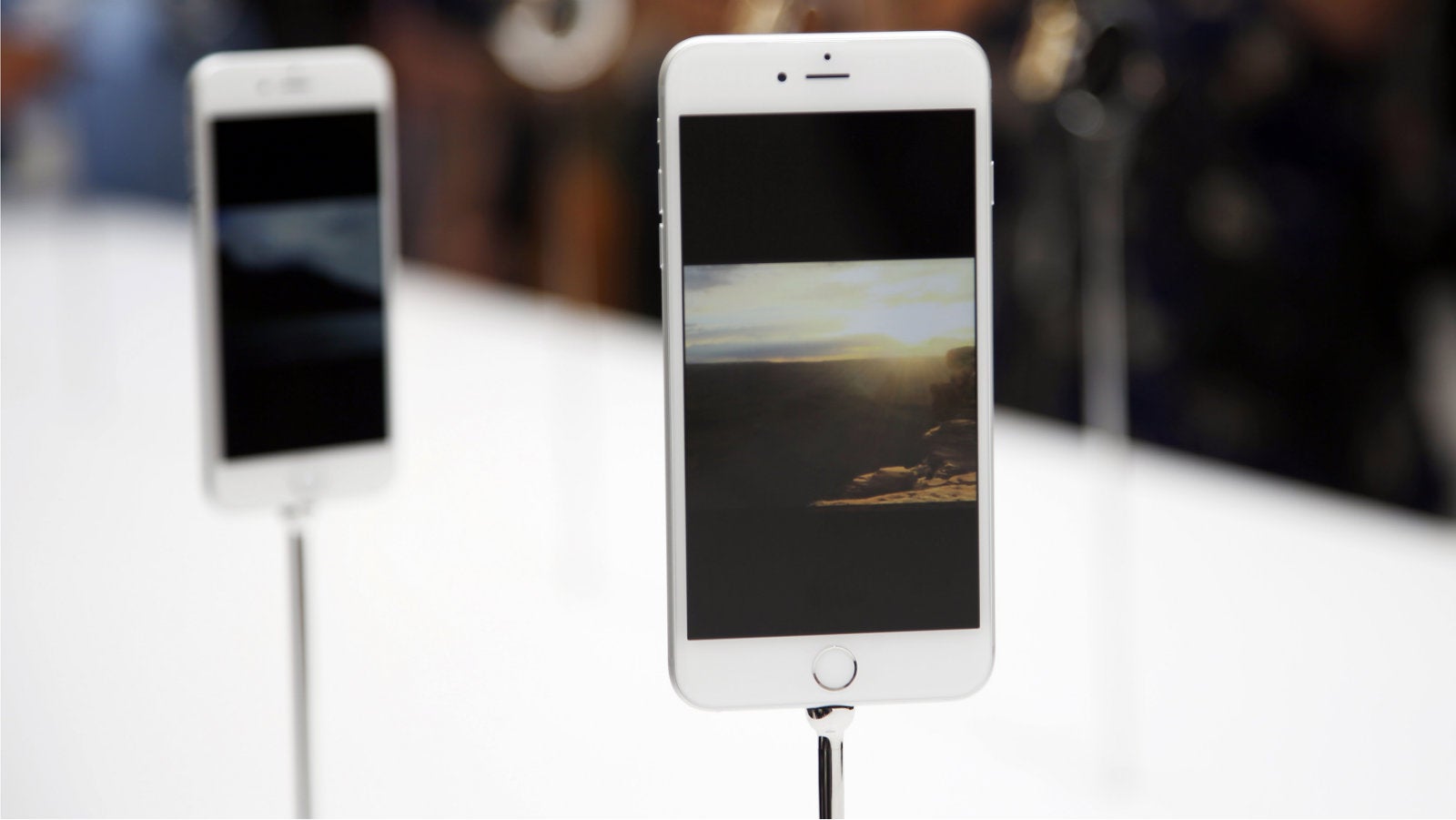Apple is using iPhone privacy as a sales pitch—too bad nobody seems to care
All modern tech companies have privacy policies. Most of them are unreadable, and remain unread. Apple, on the other hand, is drawing attention to its new policy, updated yesterday to reflect the new iOS operating system. The headline news from its latest update is that the company has locked itself out of your device:


All modern tech companies have privacy policies. Most of them are unreadable, and remain unread. Apple, on the other hand, is drawing attention to its new policy, updated yesterday to reflect the new iOS operating system. The headline news from its latest update is that the company has locked itself out of your device:
On devices running iOS 8, your personal data such as photos, messages (including attachments), email, contacts, call history, iTunes content, notes, and reminders is placed under the protection of your passcode. Unlike our competitors, Apple cannot bypass your passcode and therefore cannot access this data. So it’s not technically feasible for us to respond to government warrants for the extraction of this data from devices in their possession running iOS 8.
Translation: Apple cannot be forced to give up iPhone passwords to law enforcement or national security agencies. (iCloud data, however, is another story.)
Securing users’ mobile phone data—arguably as personal and private and the contents of their homes—is a noble goal. Apple clearly also sees it as a sales pitch. In a letter explaining the policy, Tim Cook draws a clear line between Apple and its competitors. “Our business model is very straightforward: We sell great products,” he writes. “We don’t build a profile based on your email content or web browsing habits to sell to advertisers. We don’t ‘monetize’ the information you store on your iPhone or in iCloud. And we don’t read your email or your messages to get information to market to you.” He might as well have said: Google does all of those things.
It’s a bold attempt at a switcheroo on Apple’s part. Just weeks after the highest-profile leak of private photos in history, Apple is positioning itself as a company you can trust with your most sensitive material. By integrating technology that prevents law enforcement agencies from gaining easy access to user data, the company also paints itself as an Edward Snowdenesque protector of the little guy, while drawing a clear line between itself and Google, whose Android operating system is the iPhone’s biggest challenger.
Still, it’s not clear if privacy will ever be that effective for users who have grown used to being violated by governments and hackers alike. Despite the myriad lawsuits and investigations into Google’s privacy practices, the search giant remains unrepentant. Its market share in Europe, perhaps the most privacy-conscious part of the plant, has not shrunk. As Daniel Wolfe, a payments expert and contributor to American Banker, points out, “other companies have learned the hard way that consumers don’t respond well to this message.”
The fact is that for most of us, privacy remains a nice idea but one that is easily traded in for freebies and discounts. The best example is a fibre-optic broadband service rolled out by AT&T in Austin, Texas. Prospective customers were offered a choice between an ad-free service for $99 a month or one that tracked user behaviour but cost only $70. Some 80% of sign-ups were for the cheaper plan.